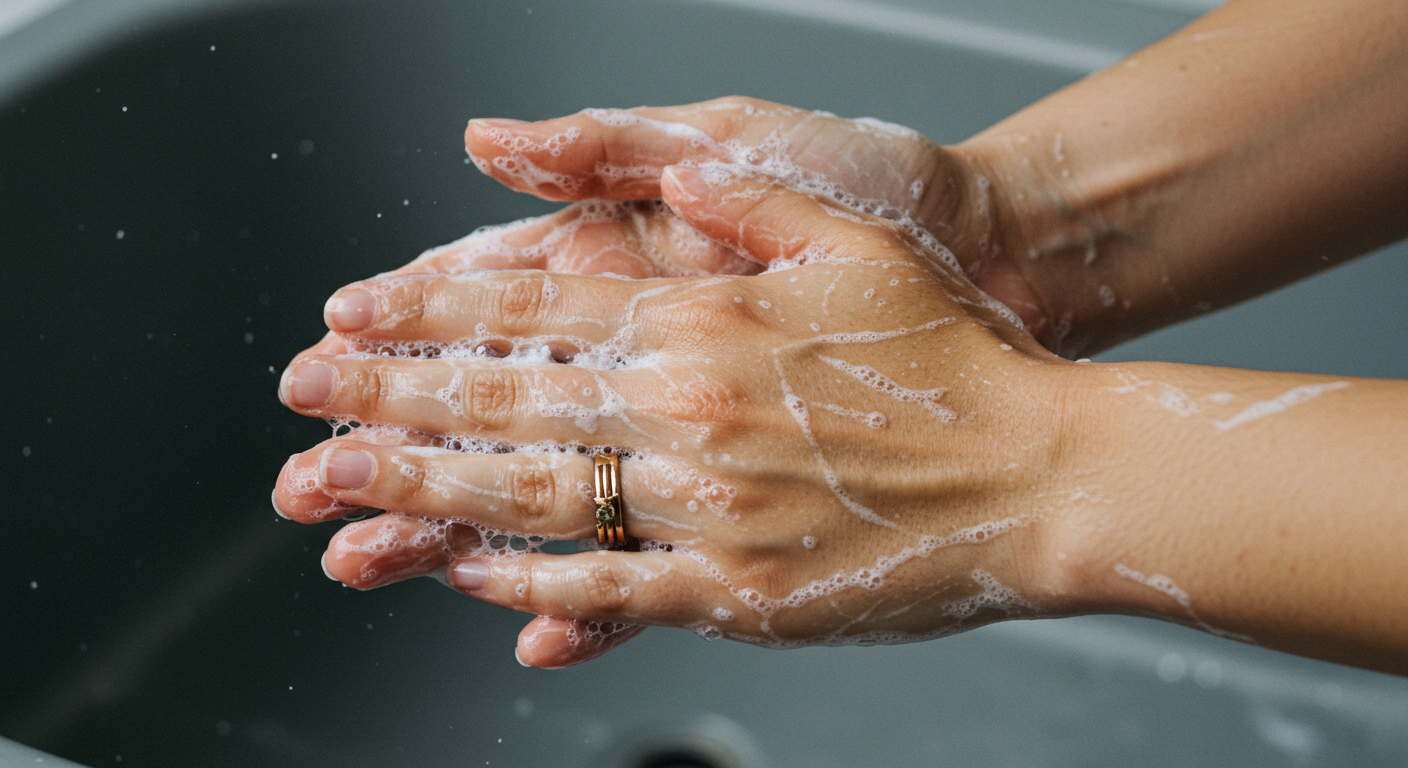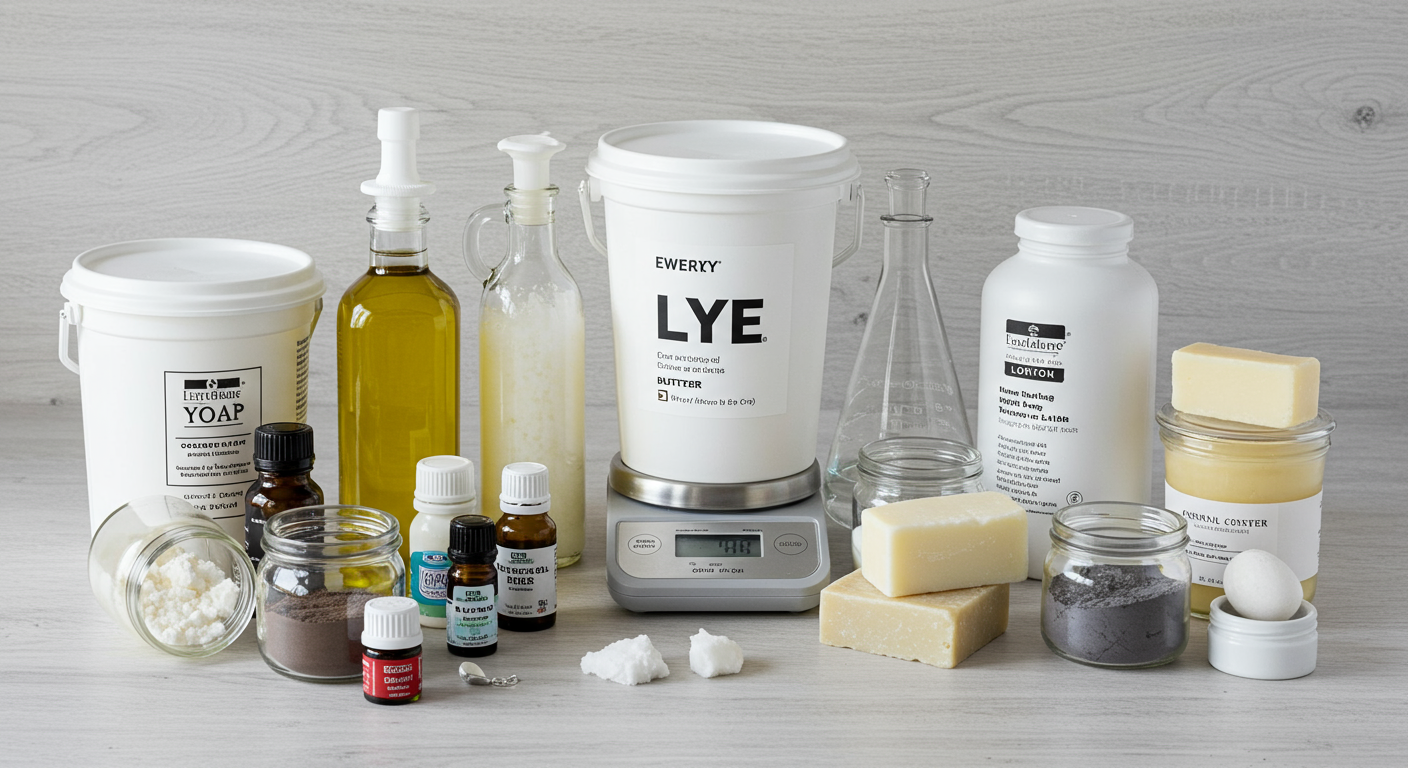Now Reading: The Profound Impact of Soap and Skincare: Beyond Just Clean
- 01
The Profound Impact of Soap and Skincare: Beyond Just Clean
The Profound Impact of Soap and Skincare: Beyond Just Clean

The Science of Clean: How Soap Works
Soap isn’t just about smelling good; it’s a marvel of chemistry. Soap molecules have a unique structure: one end is hydrophilic (water-loving), and the other is hydrophobic (water-fearing, but fat-loving). When you lather up, the hydrophobic ends latch onto dirt, oil, and germs on your skin. The hydrophilic ends then attach to water, allowing you to rinse away the grime. This process, called emulsification, is what makes soap so effective at cleaning.
Different types of soaps exist, from traditional bar soaps to liquid soaps and cleansers. Each uses slightly different ingredients to achieve this emulsification. Understanding the basic chemistry helps you appreciate the power of this everyday product.
Skincare Beyond Soap: Nourishing and Protecting Your Skin
While soap cleans, skincare focuses on maintaining the health and integrity of your skin. This includes hydration, protection from the sun and environmental aggressors, and addressing specific skin concerns like acne, aging, or sensitivity. Skincare routines often incorporate a variety of products, each designed to play a specific role.
Moisturizers replenish lost moisture and create a protective barrier. Sunscreen shields against harmful UV rays. Serums deliver concentrated active ingredients. Exfoliants remove dead skin cells. The key is to tailor your routine to your individual skin type and needs, and selecting the right soap to prep the skin for this routine.
The Impact on Health: Hygiene and Preventing Disease
Proper handwashing with soap is one of the most effective ways to prevent the spread of germs and disease. Regular handwashing significantly reduces the transmission of respiratory infections like colds and flu, as well as diarrheal diseases. In fact, the CDC recommends washing your hands thoroughly with soap and water for at least 20 seconds, especially after using the restroom, before eating, and after being in public places.
Furthermore, using soap when bathing or showering removes dirt, sweat, and bacteria that can contribute to skin infections and body odor. Maintaining good hygiene through regular use of soap is essential for both personal health and public health.
No products found.
Environmental Considerations: Sustainable Soap and Skincare
The production and disposal of soap and skincare products can have a significant environmental impact. Traditional soaps often contain harsh chemicals that can pollute waterways. Plastic packaging contributes to waste and pollution. Sustainable alternatives are becoming increasingly popular.
Look for soaps and skincare products that are made with natural, biodegradable ingredients, and packaged in recycled or recyclable materials. Consider using solid bar soaps instead of liquid soaps to reduce plastic consumption. Supporting brands that prioritize sustainability helps minimize the environmental footprint of your hygiene routine. You should also consider water waste when rinsing.
Choosing the Right Soap and Skincare: A Guide
With so many options available, choosing the right soap and skincare products can be overwhelming. Consider your skin type (oily, dry, sensitive, combination) and any specific concerns you may have (acne, eczema, aging). Read ingredient lists carefully and avoid products that contain harsh chemicals, fragrances, or dyes. Opt for products that are formulated for your specific needs and that have been tested for safety and efficacy.
Patch testing new products is always a good idea to check for allergic reactions. Consult with a dermatologist if you have persistent skin problems or are unsure about which products are right for you. A little research can ensure you are selecting products that benefit your skin and your health.
No products found.















